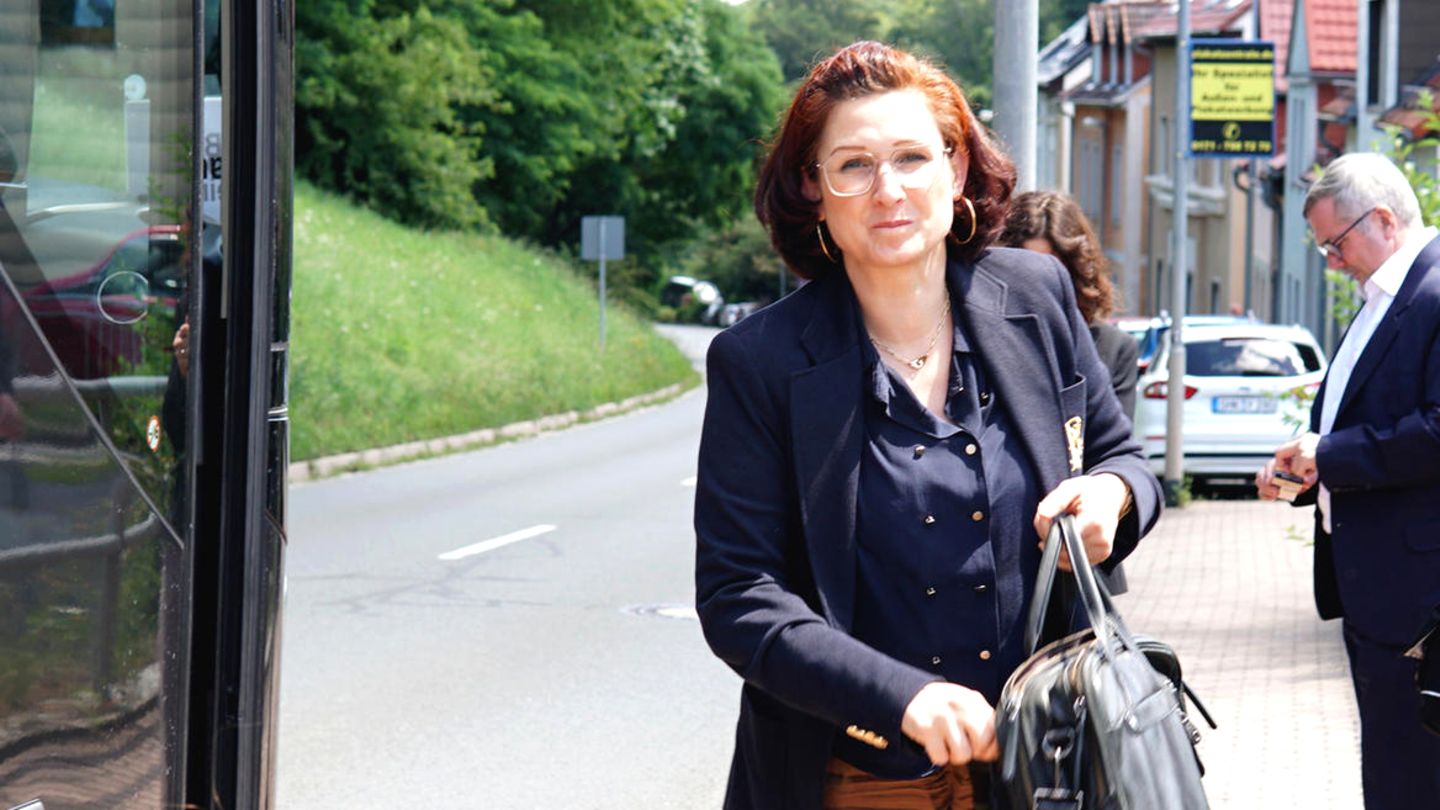Before the state elections in Saxony and Thuringia, civil society is under pressure. Anti-discrimination commissioner Ferda Ataman cannot do much to change this – unless she also convinces those who think differently.
Ferda Ataman can only watch helplessly as the district administrator storms out of the room. “Oh, let’s forget it! I have to go to my next appointment anyway,” says Johann Waschnewski, still in a cold voice. Click, door shut, dialogue failed. It is the first moment on Ataman’s journey through Thuringia and Saxony where the anti-discrimination officer gets to experience: What is discrimination and what is not is a sensitive issue here, far away from Berlin.
Ataman is not the cause of Waschnewski’s anger. A few minutes earlier, she was sitting next to him at the head of a long table in Eisenberg Castle. A chandelier hangs above her, and a dozen people who are committed to fighting discrimination in the region are gathered at the long table. Ataman has just asked Waschnewski, the newly elected district administrator of the Saale-Holzland district in Thuringia, how the integration of skilled workers is going here.
The CDU man, in his late 30s, answers with a personal anecdote: He plays football with an Uzbek who came to Thuringia as a skilled worker. At the beginning, Waschnewski helped with interpreting. But now he no longer has to do that, the man has now learned good German. “Because that’s what you need, the will to learn the language and to get involved,” says Waschnewski.
A woman at the table interrupts him in the middle of a sentence: “But Mr. Waschnewski, it’s not just about what the individual does!” she calls across the table. “There is also such a thing as structural discrimination, in everyday life, in the office.” Waschnewski then leaves.
The scene is a bad omen for Ataman’s journey through the eastern states. Because one thing will become clear: Anyone who wants to protect civil society here, far away from the nearest big city, must find broad social support. From the refugee helper to the CDU district administrator. Those who, like Ataman, believe that everyone “should have the right to migrate” – and those who are less convinced of this.
Ataman is travelling through Thuringia and Saxony because many initiatives here fear the outcome of the state elections in September. What if the AfD gains power, if it can have a say in the budget? It is not impossible that civil society will collapse because massive amounts of funding will be cut. Ataman also speaks of a fateful election: “If the AfD becomes the strongest force here, even more people will feel encouraged to openly discriminate against others.”
“Don’t go out on the streets alone at night anymore”
The next stop is Weimar. She is so taken with the small town. Ataman strolls through the pedestrian zone. Past Schiller’s house, the boutiques and cafés in the old buildings, freshly painted in pastel colors. She says: “It’s so beautiful here, but then…” She doesn’t finish the sentence, but it’s clear what she wants to say.
She has just met Ayman Qasarwa, the chairman of the Weimar Foreigners’ Council, in one of the pastel-colored old buildings. He is a quiet man with a broad smile that disappears when he says things like: “For some time now, I haven’t been walking alone on the street here at night,” for fear of a racist attack. And if I do, I only do it with a key in my hand.
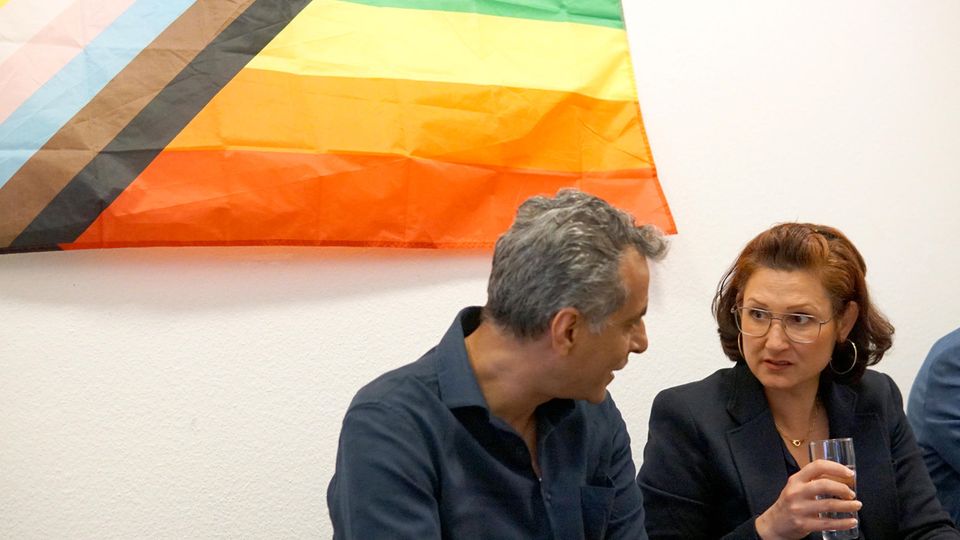
“I had this feeling before,” he tells Ataman, “in the 90s.” Those same 90s that were later referred to as the “baseball bat years.” In which neo-Nazis chased migrants and left-wing youths through the streets of small East German towns, beating them up if they caught them. Ayman Qasarwa seems convinced: This violence is coming back.
Ataman has come to listen. She wants to hear about the experiences of people like Qasarwa here. She wants to know whether the situation for members of minorities is really as dramatic as it seems from Berlin. “Most of the time, all I hear from here is what’s on the news,” she says.
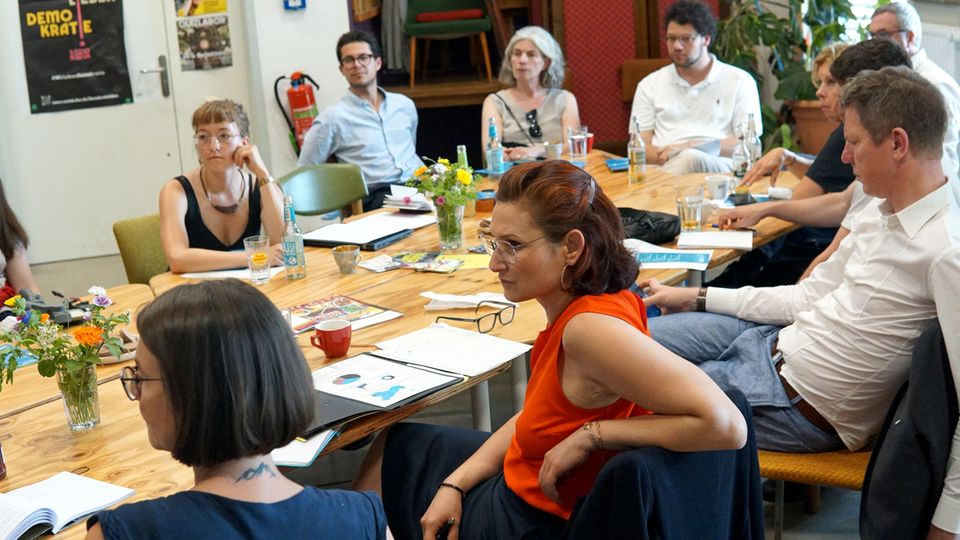
Wherever she goes, the initiatives mainly give her assignments. Everywhere she hears: We have too little money and far too few staff. In Thuringia, there are just six consultants who have the necessary training to advise on the applicable law and, in the worst case, to file a lawsuit.
Door-to-door canvassing for funding
In Weimar, Ataman makes the initiatives an offer: if they really don’t know what to do, they can always call their anti-discrimination office in Berlin. And then, Ms. Ataman? “Well, that’s a good question,” she says, looking a little confused for a moment. She can then only pass on the call for help to the federal government. “After all, I always have to go door-to-door to get funding.”
That is the tragedy of Ataman’s task: she is the first anti-discrimination commissioner to be elected by the Bundestag. That gives her legitimacy. But like her predecessors, she can only distribute a small amount of money. Laws that would change that are currently falling apart in the Bundestag. In any case, it is not enough to achieve her self-imposed goal: that here in rural areas, everyone who is discriminated against because of their origin, sexuality, disability or age can find a counseling center nearby.
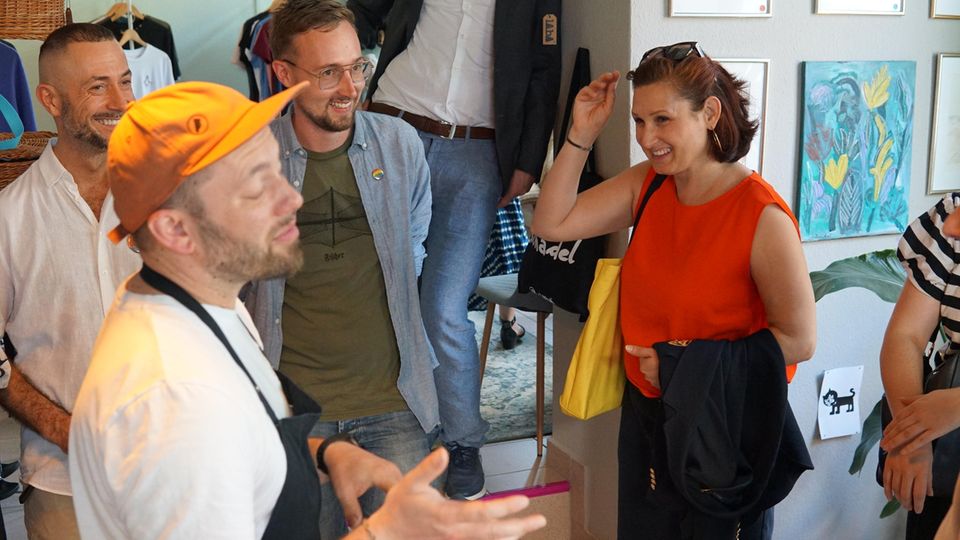
This goal seems even more utopian in view of the state elections in September. Polls from June predict that the AfD will receive over 28 percent of the vote in Thuringia and 31 percent in Saxony. The party makes no secret of the fact that it would prefer to abolish the Thuringian anti-discrimination office. This could mean that there will soon be fewer, not more, advice centers.
Now Ferda Ataman must also convince those who think differently
On her trip, Ferda Ataman mainly meets like-minded people. She visits civil society initiatives, a left-wing fashion brand and a company that promotes diversity. Her visit shows her appreciation for their work. But she also moves in a bubble that thinks in a similar way to her. And the truth is that this bubble can no longer help itself in the East because it increasingly lacks majorities to do so.
This is demonstrated by a case from Görlitz, where Ataman is supporting the establishment of an advice centre for rural areas. There she visits the socio-cultural centre “Rabryka”, an old wagon factory, which houses a youth centre, rooms for clubs, a concert hall. And perhaps soon an advice centre against discrimination.
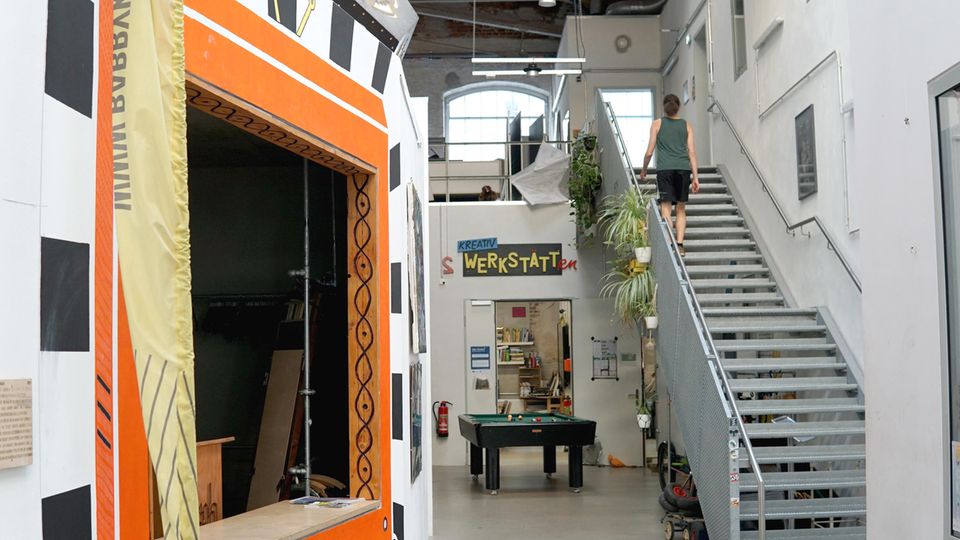
If the “Rabryka” still exists then. The AfD faction in the city council has been wanting to terminate its rental contract for some time. After the local elections last month, they only need to convince five more city councilors of this plan, then the center would have to close. Here the firewall suddenly takes on a very practical meaning.
So perhaps Ferda Ataman will have to do one thing above all else on her next trip to East Germany: convince those who do not spend every day working on the move to a discrimination-free world. The bourgeois city council in Saxony, the conservative district administrator in Thuringia. Because in the end, it may be they who will decide the fate of civil society on the ground.
Source: Stern
I have been working in the news industry for over 6 years, first as a reporter and now as an editor. I have covered politics extensively, and my work has appeared in major newspapers and online news outlets around the world. In addition to my writing, I also contribute regularly to 24 Hours World.

